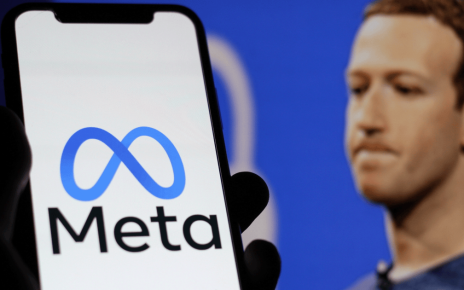The digital landscape is constantly evolving, and Google is at the forefront of this transformation. With the launch of Google Gemini, a new chapter in personalized advertising begins. Imagine browsing online and encountering ads that resonate with your interests, preferences, and previous searches. Sounds intriguing, right? This technology promises to take personalization to unprecedented levels by utilizing search history for tailored experiences. As users navigate through an ocean of information and brands vie for attention, understanding how Google Gemini works can be a game-changer for both consumers and businesses alike. Let’s explore what this innovative platform brings to the table!
What is Google Gemini?
Google Gemini is the latest innovation from Google, designed to enhance the way users interact with online content. This advanced platform leverages artificial intelligence to create a seamless and personalized experience across various digital touchpoints.
Gemini integrates multiple data sources, including user activity and preferences, allowing it to deliver tailored results in real-time. Its ability to analyze complex patterns sets it apart from traditional advertising methods.
The goal of Gemini is straightforward: make online interactions more relevant. By understanding individual user behavior, this tool aims to connect businesses with their ideal audience more effectively than ever before.
As personalization becomes a pivotal aspect of modern marketing strategies, Gemini stands ready to lead the charge into a new era of targeted advertising that places user interests at its core.
The Power of Personalization in Online Advertising
Personalization has transformed the landscape of online advertising. It enables brands to connect with users on a more meaningful level. By tailoring messages based on individual preferences, businesses can enhance engagement.
Consumers today expect relevant content that resonates with their interests. Generic ads are less effective and often ignored. Personalization captures attention by showcasing products or services that align closely with user behavior.
This approach not only boosts click-through rates but also fosters brand loyalty. When customers feel understood, they are more likely to return.
Moreover, personalized advertising creates a sense of value for consumers. They appreciate recommendations that simplify decision-making and save time in their search for products or services.
In an ever-evolving digital world, harnessing the power of personalization is essential for success in online marketing strategies.
How Google Gemini Uses Search History for Personalization
Google Gemini leverages search history to tailor content and advertisements to individual users. By analyzing past searches, it identifies patterns in user behavior and preferences.
When you search for specific topics, Google Gemini captures that data. This allows it to serve relevant ads based on your interests rather than random selections. For instance, if you frequently look up travel destinations, expect personalized offers from airlines or hotels.
Additionally, the system adapts over time. As your search habits evolve, so do the recommendations provided by Google Gemini. This dynamic approach enhances user experience while improving ad effectiveness.
The result is a unique blend of personalization that aims to keep users engaged with content they are most likely to appreciate. It’s a shift towards smarter advertising that resonates more deeply with consumers’ needs and desires.
Benefits of Personalized Advertising for Businesses and Users
Personalized advertising brings significant advantages to both businesses and users. For companies, it enhances customer engagement by delivering tailored messages that resonate with individual preferences. This targeted approach can lead to higher conversion rates, as potential customers are more likely to respond positively to ads that reflect their interests.
On the user side, personalized ads create a more relevant browsing experience. Instead of being bombarded with generic promotions, individuals receive suggestions aligned with their specific needs and tastes. This not only saves time but also simplifies decision-making processes.
Moreover, personalized advertising fosters brand loyalty. When users feel understood and valued through customized marketing efforts, they are more inclined to develop a connection with brands. It builds trust and encourages repeat business—an essential element for long-term success in any industry.
Criticisms and Concerns Surrounding Google Gemini’s Use of Search History
Google Gemini’s reliance on search history raises valid concerns among users regarding privacy. Many fear that their personal data is being exploited without consent. This unease can hinder trust in the platform.
Moreover, there’s a worry about how much data is collected and stored. Users often wonder whether this information could be misused or fall into the wrong hands. Transparency remains a significant issue here; people want clarity on what data is retained and for how long.
Another criticism centers around algorithmic biases that may arise from personalized advertising. If Google Gemini tailors ads based solely on past searches, it might reinforce existing preferences rather than introduce new ideas or products.
Such limitations can create echo chambers where consumers are only exposed to familiar brands and perspectives, stifling diversity in online experiences. These challenges highlight the need for ongoing dialogue about ethical practices in digital marketing.
Tips for Managing Your Privacy Settings on Google Gemini
Managing your privacy settings on Google Gemini is essential for controlling how your data is used. Start by accessing the settings menu directly in the app.
Check out the “Personalization” section. Here, you can see which types of data are being collected and adjust preferences accordingly.
Don’t hesitate to clear your search history periodically. This action helps keep unwanted information from influencing future recommendations.
Consider utilizing incognito modes when browsing sensitive topics or products. It’s a simple way to prevent certain searches from affecting your personalized ads.
Review ad personalization settings regularly to ensure they align with your current interests and comfort levels. Staying proactive about these adjustments empowers you to enjoy Google Gemini while retaining control over your personal information.
Conclusion: Embracing the Future of Personalized Advertising with Google Gemini
The landscape of online advertising is evolving with the introduction of Google Gemini. This innovative platform harnesses the power of personalization through search history, creating tailored experiences for users and businesses alike.
Personalized advertising not only enhances user engagement but also improves conversion rates for companies. As brands leverage data to connect meaningfully with their audience, consumers enjoy relevant content that resonates with their interests.
While there are valid concerns regarding privacy and data usage, managing your settings can help maintain a balance between personalization and personal information security. Google Gemini represents a significant step forward in how we experience digital marketing.
Embracing this technology opens doors to opportunities that were previously unimaginable in the realm of online interactions. The future looks bright as personalized advertising continues to advance, driving innovation while catering to individual preferences across various platforms.



